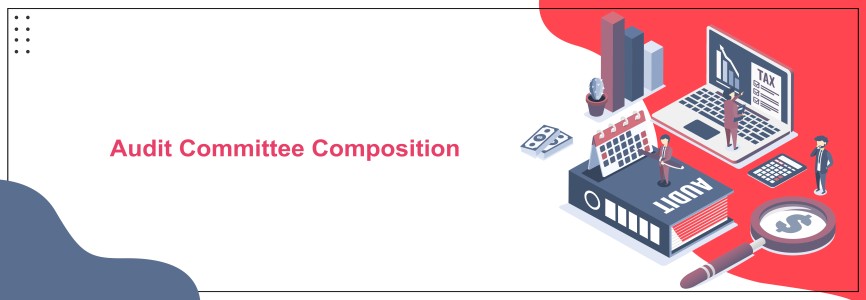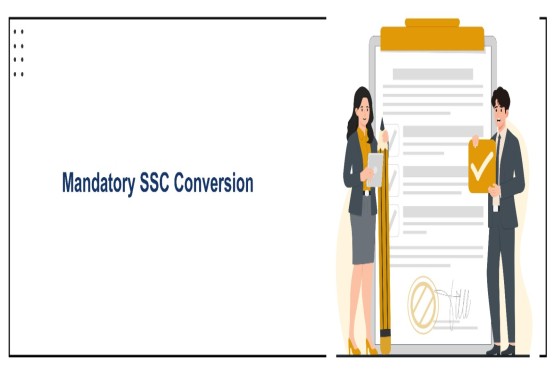Contravention of Section 177(1) of the Companies Act, 2013
The Companies Act, 2013, through Section 177, mandates the constitution of key board committees such as the Audit Committee to ensure transparency, accountability, and effective governance in public companies. Non-compliance with these provisions undermines the corporate governance framework and attracts monetary penalties for both the company and its officers.
In the present case, the company in question transitioned into a Public Limited Company on 09.11.2021, thereby becoming statutorily bound to constitute an Audit Committee under Section 177(1). However, the company failed to comply with this mandatory requirement during two distinct periods, leading to contravention of the Act. Recognizing the lapse, the company approached the Registrar of Companies under Section 454, seeking adjudication of the default. The Registrar, after examining the application and observing repeated non-compliance, initiated penalty proceedings and granted the company an opportunity of hearing on 02.05.2025.
Facts of the Case
The present matter pertains to the contravention of the provisions of Section 177(1) of the Companies Act, 2013, read with the Companies (Meetings of Board and its Powers) Rules, 2014 and the Companies (Appointment and Qualifications of Directors) Rules, 2014. Section 177 mandates that every listed public company and such classes of companies as may be prescribed shall constitute an Audit Committee of the Board. Non-compliance with this statutory requirement amounts to a violation attracting penalties under the Act. The company was earlier registered as a Private Limited Company. On 09.11.2021, the company was converted into a Public Limited Company. Consequent to this conversion, the company became subject to the provisions of Section 177(1), which required it to duly constitute an Audit Committee and comply with the related rules. Upon scrutiny of records and the application submitted by the company, it was observed that the company failed to constitute/comply with the requirements of Section 177(1) for the following periods:
-
09.11.2021 to 12.09.2023 – The initial period of default after conversion to a public limited company.
-
01.08.2024 to 12.11.2024 – A repeated default, indicating continued non-compliance despite the earlier lapse.
These lapses clearly indicate that the company and its officers failed to discharge their statutory obligations under the Companies Act.
Acknowledging its failure, the company voluntarily filed an application under Section 454 of the Companies Act, 2013, through Form GNL-1 (bearing SRN N29231016), seeking adjudication of the non-compliance. Section 454 empowers the Adjudicating Officer to impose penalties for defaults under the Act. Upon receipt of the application, the Adjudicating Authority considered the matter and scheduled a hearing on 02.05.2025. The company and its officers were given an opportunity to present their submissions and clarify the reasons for non-compliance. The repeated nature of default was also taken into account, for which separate proceedings under Section 454 are proposed to be initiated by the authority. As per Section 177 read with the penalty provisions under the Act, the company is liable to a penalty of Rs.5,00,000 (five lakh rupees), while every officer of the company who is in default is liable to a penalty of Rs.1,00,000 (one lakh rupees) each.
Legal Issues
-
Whether the company, upon conversion from a private limited company to a public limited company on 09.11.2021, became mandatorily required to constitute an Audit Committee and Nomination & Remuneration Committee as per Section 177(1) of the Companies Act, 2013, read with the applicable rules?
-
Whether the failure of the company to constitute such committees from 09.11.2021 to 12.09.2023 amounts to a contravention of Section 177(1) of the Companies Act, 2013?
-
Whether the subsequent failure to comply during the period 01.08.2024 to 12.11.2024 constitutes a repeated/default, thereby aggravating the liability of the company and its officers under the Act?
-
Whether the company, by filing an application under Section 454 of the Act in Form GNL-1 (SRN N29231016), has sufficiently disclosed and admitted its default, and what is the legal effect of such suo motu disclosure on the adjudication of penalties?
Penalty
Upon careful perusal of the facts, application filed under Section 454 of the Companies Act, 2013, and after providing an opportunity of hearing to the company on 02.05.2025, the following is observed:
-
The company was converted from a Private Limited Company to a Public Limited Company on 09.11.2021, thereby attracting the mandatory requirement under Section 177(1) of the Act to constitute an Audit Committee and a Nomination and Remuneration Committee, in compliance with the Companies (Meetings of Board and its Powers) Rules, 2014 and the Companies (Appointment and Qualifications of Directors) Rules, 2014.
-
It is evident from records that the company failed to constitute the required committees during the period 09.11.2021 to 12.09.2023, and again committed a repeated default from 01.08.2024 to 12.11.2024.
-
Such non-compliance constitutes a contravention of Section 177(1) of the Companies Act, 2013, attracting penalty under Section 177(8).
-
The company, despite suo motu filing under Section 454 in GNL-1 (SRN N29231016), cannot be absolved of its statutory liability. However, the voluntary disclosure shall be treated as a mitigating factor while adjudging the penalty quantum.
-
Therefore, penalty is attracted both on the company and on its officers in default separately, as prescribed under Section 177(8).
Jainam Broking Limited- 500000
Dishant Milanbhai Parikh- 100000
Meghavi Rajesh Gonavala- 100000
Mittal Narendrabhai Shah- 100000
Milan Suresh Parikh- 100000
Anal Milan Parikh- 100000
Vidhi Dishant Parikh- 100000
Payment of Penalty
-
The Adjudicating Officer finds the company and its officer guilty of the violation of provisions of this act.
-
The penalty must be paid within 90 days through MCA e- Adjudication portal.
-
The officers are required to pay the penalty from their personal funds.
-
Under section 454(5) and (6) the regional director, Ahemdabad has the right to appeal within 60 days
Final Note of the Article
Thus, the conclusion emerges that the company and its officers failed to fulfill their statutory duties, leading to imposition of penalties under the Act. The proceedings also reaffirm the broader principle that corporate governance norms, such as the constitution of an Audit Committee, form the backbone of accountability and transparency in public companies, and any violation thereof invites strict adjudication and penalties to ensure deterrence and compliance in the corporate sector.











































































_crop10_thumb.jpg)


































































_crop10_thumb.jpg)
_crop10_thumb.jpg)



_crop10_thumb.jpg)


_crop10_thumb.jpg)





_crop10_thumb.jpg)

_crop10_thumb.jpg)














-suratgujarat-section-158_crop10_thumb.jpg)
-suratgujarat_crop10_thumb.jpg)
-(33)_crop10_thumb.jpg)



-ahmedabad_crop10_thumb.jpg)
-learn_crop10_thumb.jpg)

-learnn_crop10_thumb.jpg)



























































_crop10_thumb.jpg)























_Guidelines_learn_crop10_thumb.jpg)























_learn_crop10_thumb.jpg)
_crop10_thumb.jpeg)










_crop10_thumb.jpg)




_Second_Amendment_Rules,_2025_learn_crop10_thumb.jpg)







_learn_crop10_thumb.jpg)












































_learn_crop10_thumb.jpeg)























_learn_crop10_thumb.jpg)



_rd_roc_learn_crop10_thumb.jpg)
















_learn_crop10_thumb.jpg)













_learn_crop10_thumb.jpg)
_Learn_crop10_thumb.jpg)











































_learn_crop10_thumb.jpg)




_learn_crop10_thumb.jpg)













_crop10_thumb.jpeg)

















